[ad_1]
“If someone asks me ‘Why do you make films?’ I tell them it’s because it has everything I like — music, photography and acting,” says Naveen Tejaswi. Naveen may have won an award for Creative Writing in Kannada from TOTO Funds the Arts, but behind that unassuming mien lies a creative soul who expresses himself through theatre, photography and films.
Hailing from Hosabale in Shivamogga, Naveen is a first generation student from his family and after completing his primary education from his village, came to Bengaluru to pursue a BSc degree from St Joseph’s College.
“I wanted to become a scientist, but after a while I realised that though I was good at it, I did not enjoy it.“
Launchpad
“I was doing theatre in college and had started watching films. I had come to Bangalore in 2014, and would watch English movies everyday with subtitles to learn the language. Soon, I fell in love with the media.”
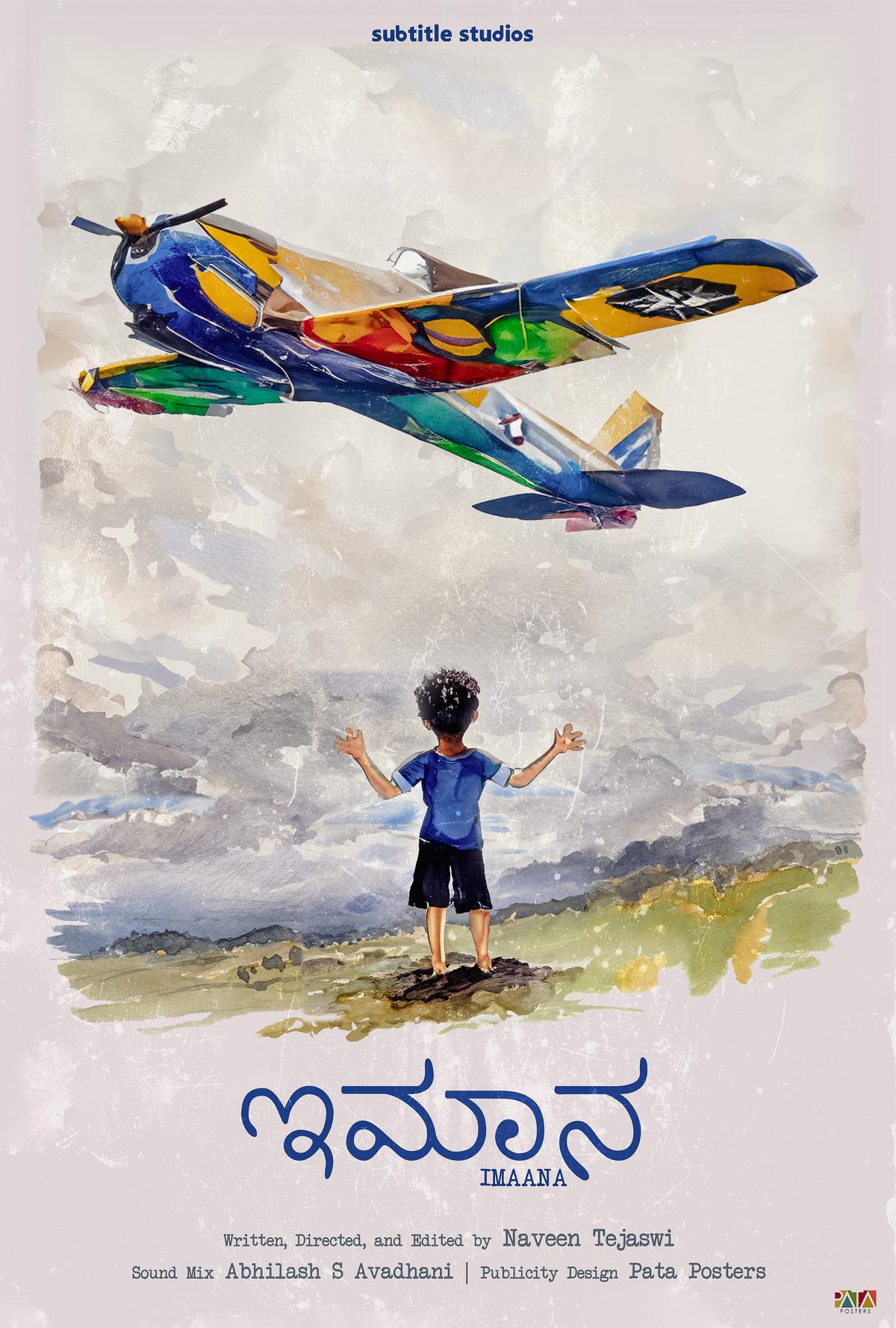
The poster for Vimaana a short film by TFA winner Naveen Tejaswi
| Photo Credit:
Special Arrangement
His stay in the city brought him exposure to world cinema, literature and photography, which only fuelled his creativity as he used to write poems, essays and short stories in Kannada, even as a youngster.
Naveen used to work part-time jobs in college and when he was gifted a second hand DSLR camera, he began taking photographs, eventually gaining a proficiency in it.
Today, Naveen writes and directs films casting people from his village. So far, Naveen has directed four short films and all of them done the festival circuit. Bidugade (Redemption) was a finalist at KIKSFF at California in 2019 and The Sicklehook was the official selection for EFF, Khanty Mansi in Russia for 2018.
More recently, his short film Habba Haridina Suggi Shivaratri was released on YouTube after it was rejected for its politics by a few film festivals.
“Over a 100 people from my village have been part of my films shot with minimal or borrowed equipment. They say it takes a village to raise a child — the same holds true for homegrown cinema. I call these my sustainable films.”
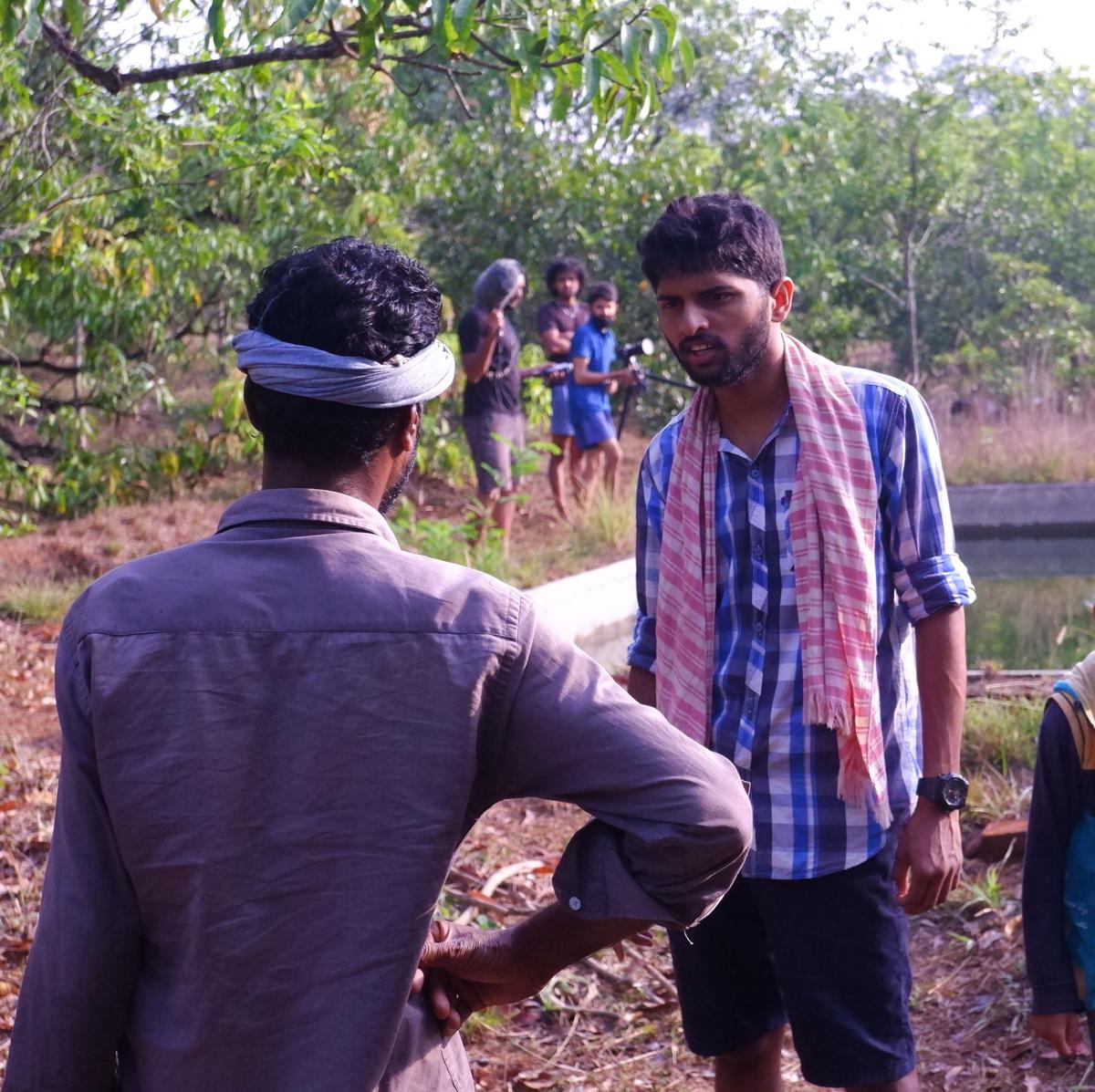
Naveen during the shooting of a film
| Photo Credit:
Special Arrangement
Though his short stories and films are in Kannada, “Last year I started writing in English too,” says Naveen, adding, “Called Track One, it won the Barbra Naidu prize for personal essay writing.” It motivated him to keep writing despite initial setbacks. Today, that story is part of St. Joseph’s Communicative English syllabus.
“When I first started writing, I used the dialect of my village because that’s what I think in. But when it came to validation — from established writers or professors, they couldn’t connect to those language patterns and nuances.”
Naveen turned down an offer to publish his stories in 2018 because the editors wanted to bring in a lot of changes to the language and approach to make it more suitable. That put a spanner in his imaginative works for almost five years. “During that time I battled with confusion on confidence on what is accepted and what is not. There were no other examples or a reference to the context of social, economic or political background of my village in mainstream media, making it harder to be accepted.”
“In 2023, I finally decided to couldn’t stifle it any longer, couldn’t wait for the world to say it was okay. So I started writing again. These stories are set in my village which has 300 houses. Of these, perhaps 10 belong to members of the Brahmin community who are the landowners, while the rest of us work for them. We are the first generation to go to school and my stories look at the lives of people in the village.
Writer’s clock
Naveen has been working on a collection of short stories set in his village. “I’m interested in contemporary films and literature. I want to know how different artistes are seeing the world we are living right now.”
His winning entry for the TOTO Award were two stories from that collection.
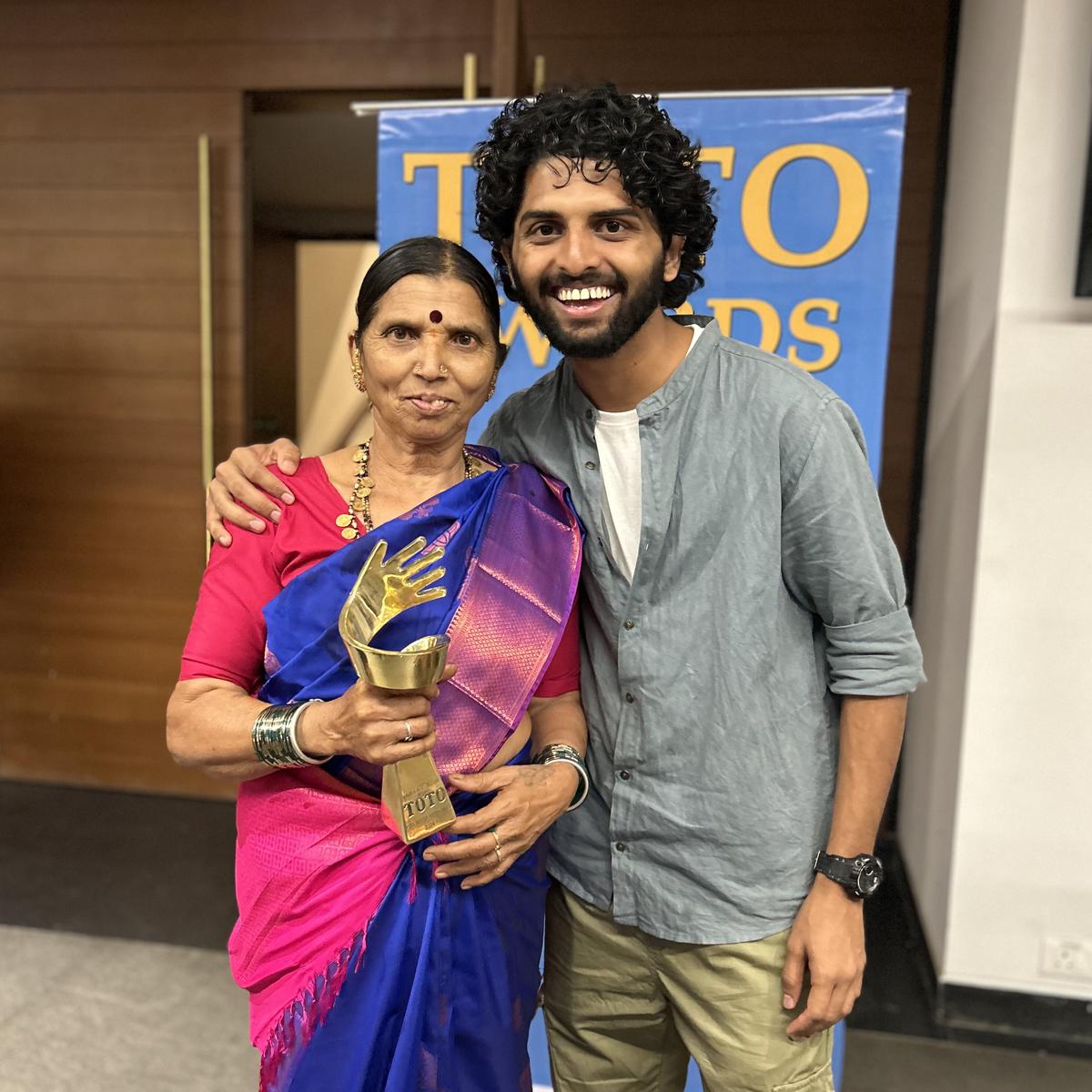
Naveen Tejaswi with his grandmother at his TFA win
| Photo Credit:
Special Arrangement
“I believe the stories we tell or create stem from the place we live our experiences. Though there are famous writers in Kannada, due to their socio-political backgrounds, I couldn’t relate to their work. As a first generation student from an oppressed caste, and even while growing up, I would wonder why the stories of those around me were rarely found in any media.”
He agrees that Art imitates Life, and that, “people in pop culture exist too, but their stories are not real for me. I cannot relate to the things they do. I have come to understand that privilege has a lot to do with making art.”
He goes on to elaborate, “Art takes a lot of time and resources. For someone coming from a privileged background these things come easily.”
TFA wins
Talking about the stories which won the TFA Award, Naveen says, “One story is called ‘Suraghi’— it’s a flower whose fragrance lingers for days even after it dries, but it is not used as a temple offering. The story is about a father and his daughter. The father like his father before him have been workers in a Brahmin family for generations now. The story is from the daughter’s point of view — she wants to become a pilot when she grows up.”
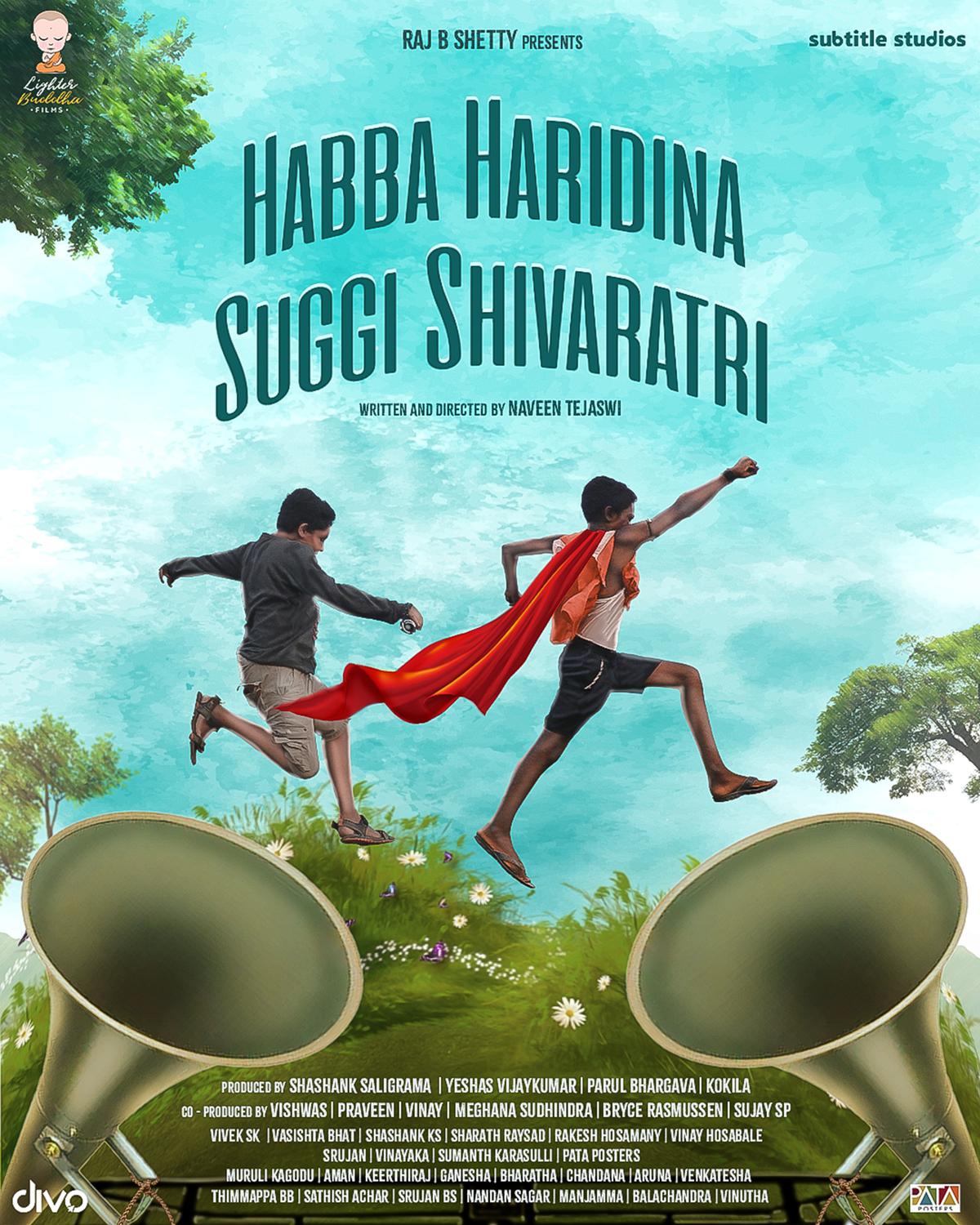
The poster of a short film by Naveen Tejaswi
| Photo Credit:
Special Arrangement
“The other story is ‘Bangara,’ also the name of a flower called gold-petalled dahlia in English. This is a story about a mother and her daughter. The mother is a single parent and like most women in our village, after her day as a daily wage earner, she sits with them to dehusk areca from 9pm-11pm to supplement her income.”
“This lady is 60 years old now, and her daughter is married and living away. The mother wants to spend more time with her grandchild but not able to. The story explores the dynamics of their relationship, the gap caused by liking and disliking certain things about each other.”
Both ‘Suraghi’ and ‘Bangara’ won the TFA Award for Creative Writing in Kannada this year. At his acceptance speech, Naveen said he would be using the award money to start an art centre in his village. “It’s called Bheema Shale and on April 6, 2024, we will officially launch the centre where we will conducts a camp for spoken English and music.
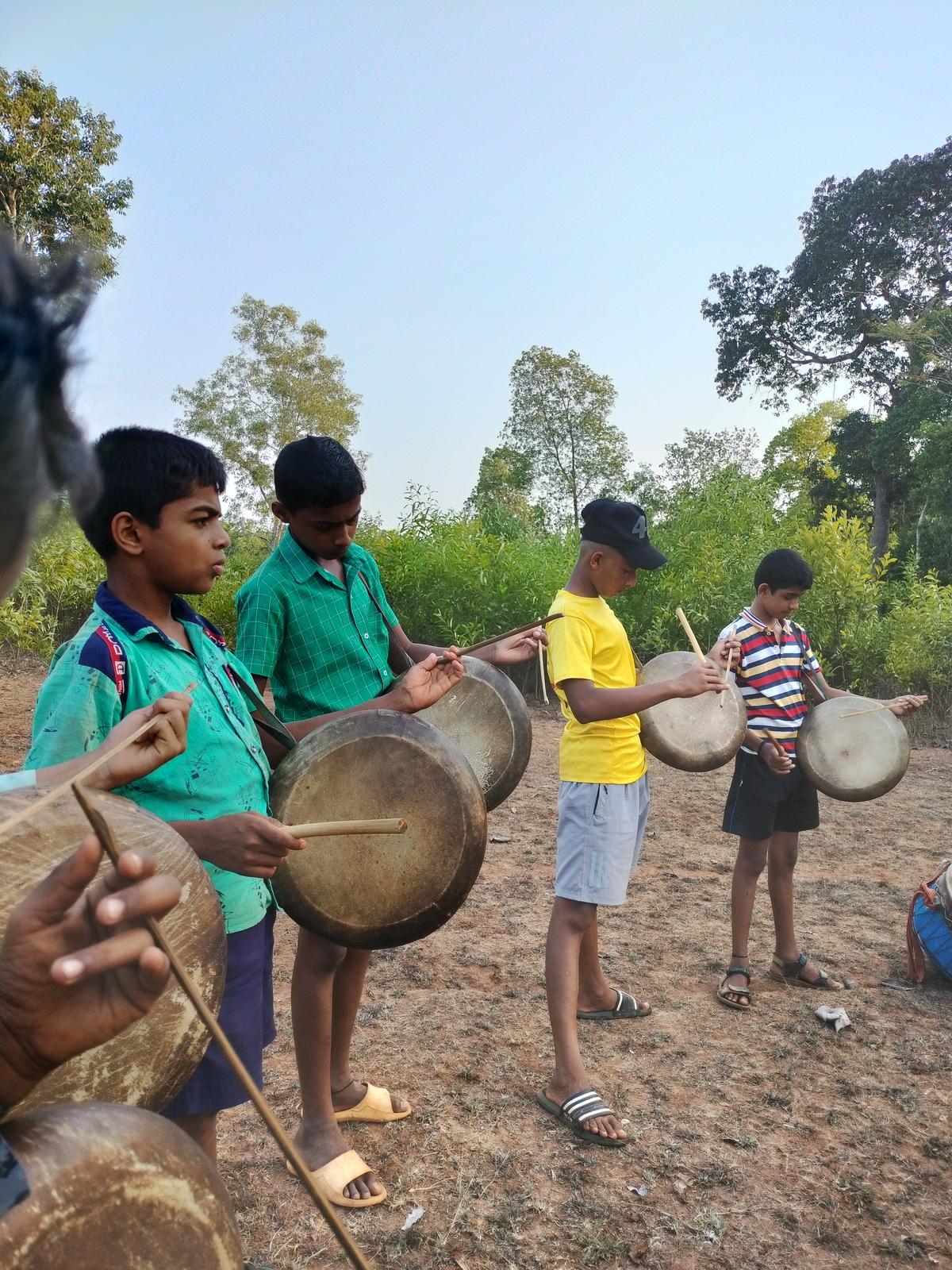
Preparations underway for celebrations at launch of the art centre
| Photo Credit:
Special Arrangement
“My friends from Adavi, a Bengaluru-based collective will teach us to play the tamate (a hand drum), while I will take the English class.”
The TOTO Awards were instituted 20 years ago by Toto Funds the Arts, a non-profit trust set up in 2004 in memory of Angirus ‘Toto’ Vellani. The annual Toto Awards are intended to encourage and recognise potential in artists under the age of 30.
[ad_2]
Source link





